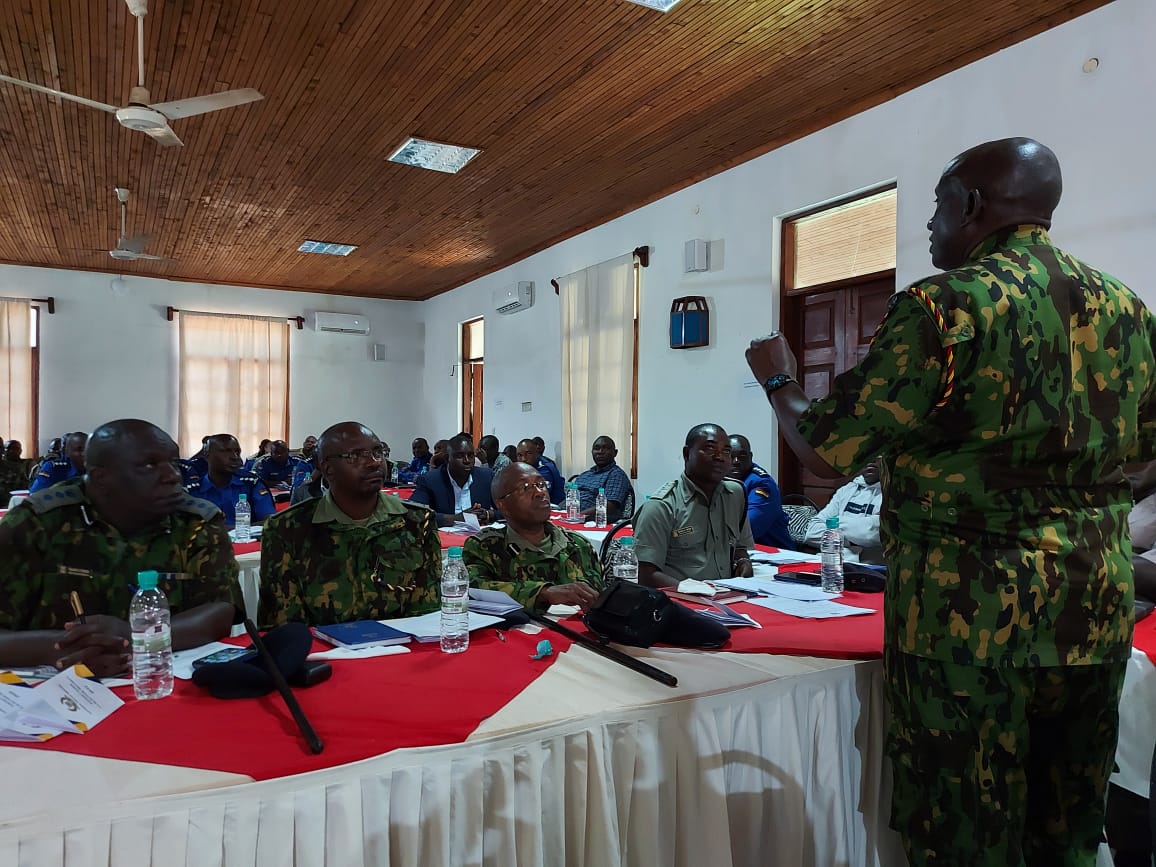Police training rolled out across Kenya ahead of elections
Date:
A nationwide rollout of training on sexual and gender-based violence has recently concluded across Kenya to better equip law enforcement officials prevent and mitigate sexual violence during the country’s 2022 General Election.

A joint project from UN Women and OHCHR Kenya has trained 141 police commanders on election security management. This four-day training specifically highlighted electoral-related sexual and gender-based violence and their specific role when dealing with these cases.
A further 846 officers across 12 potentially violent hotspot counties were also trained in public order management and prevention and response to violence against women in elections (VAWE). The participants were also taken through the process of developing County Election Security Operation Plans, with clear action plans developed. Building the capacity of Kenya’s law enforcement is a critical component of the project which aims to prevent and respond to VAWE UN Women Programme Specialist Mary Wanjiru explains how important the National Police service is as a partner:
“The police in Kenya represent one of the most important parts of the jigsaw when it comes to GBV prevention and response. In previous elections there have been significant challenges in processing cases and ensuring survivors receive justice for the violations committed against them. This training will help bring the service onto the same page in terms of survivor-centred, rights-based approach to dealing with GBV issues as we enter election period – a time often associated with violence in this country.”
Trainings were targeted in locations identified as potential hotspots in including Kilifi, Mombasa, Kisumu and Nakuru. In addition to training UN Women and UN Human Rights have targeted community human rights defenders to build their capacities and understanding of the referral pathway for cases of VAWE. Supporting their participation in local court users committees (CUCs), human rights defenders have become more conversant with law and steps necessary for handling sexual and gender-based violence cases.
The project, supported by the Government of Italy, was established in 2019, based upon a gap analysis of previous electoral violence response. One of the key highlights of the report found a lack of capacity among law enforcement and security agents to appropriately deal with SGBV cases and survivors lacking the knowledge of how and where to report such violations.